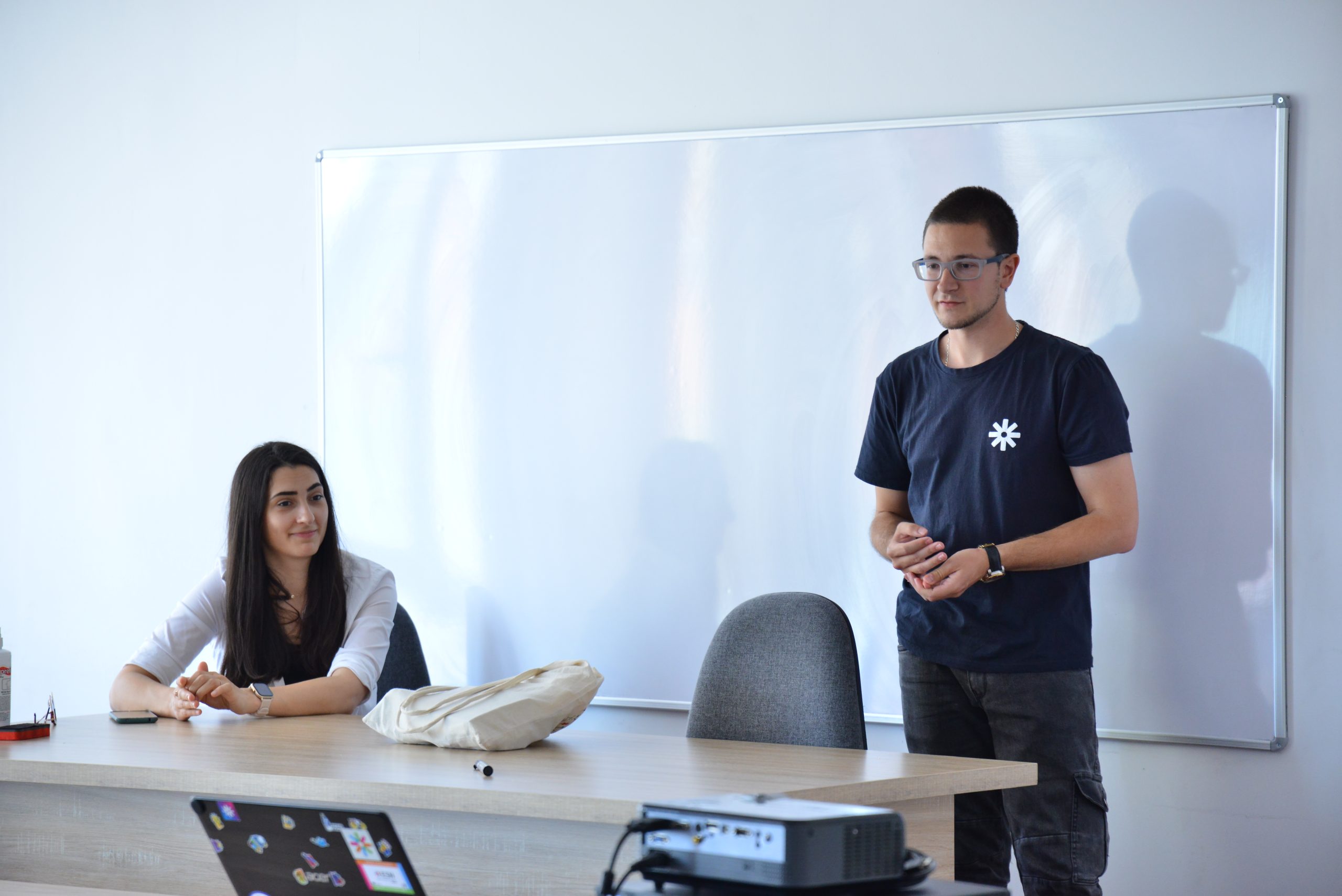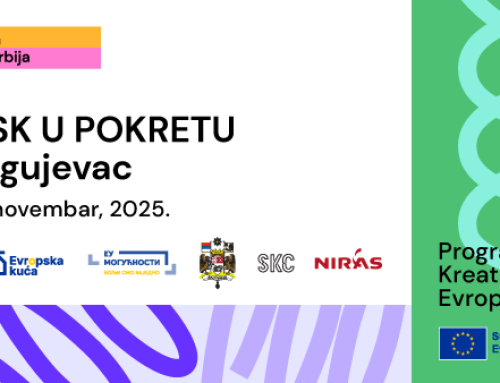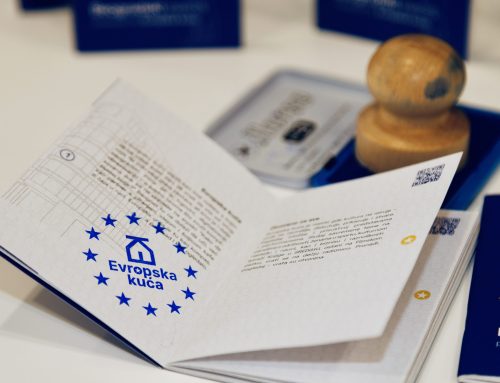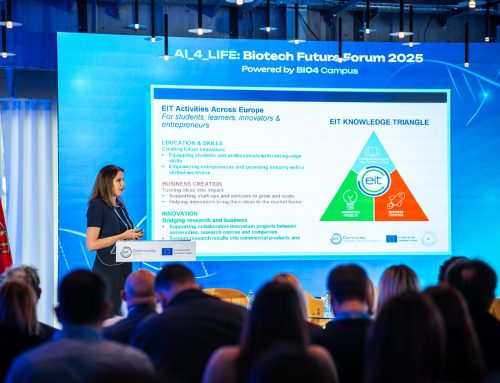The “Erasmus + Chat” event is a unique opportunity for young people in Serbia to learn from their peers about the opportunities offered by Erasmus + and other European Union youth programmes.
One of the “Erasmus + chats” took place this week in the extreme south of Serbia, at the Faculty of Economics in Bujanovac (department of the Faculty of Economics in Subotica).During the event, representatives of the Erasmus Student Network from Niš, Ivana Stefanovic and Dimitrije Prokopovic, both Erasmus+ alumni, shared their experiences and gave practical advice to those who intend to apply for one of the programmes and spend a semester at a European university.
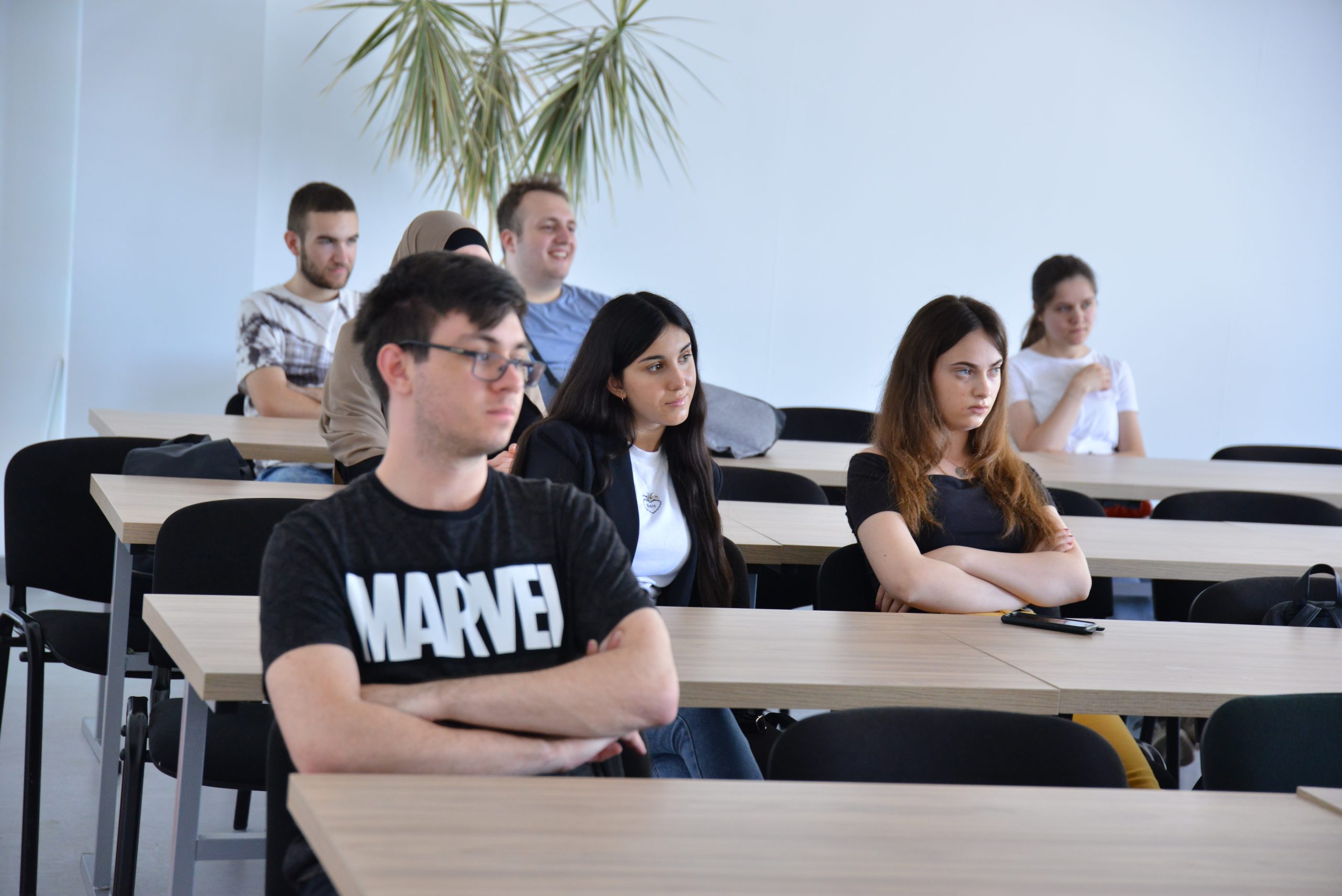
Students from Bujanovac also had the opportunity to hear from Mariia Kuzmenko from Ukraine, who is spending the current semester at the Faculty of Occupational Safety in Niš. Mariia described her stay in Niš as an invaluable experience, recommending Erasmus to any student who wants to travel, learn about new cultures, and enrich their knowledge, but also their CVs.
Darko Cvetković and Fitore Saqip, both students of the Faculty of Economics in Bujanovac, who attended the presentation, said they saw Erasmus + as a great opportunity for young people to study abroad for a while, improve their language skills, and visit new places.
The Erasmus + Chat is organised by the Erasmus Student Network (ESN) with the support of the EU Delegation to Serbia.
On this occasion, the youth in Bujanovac also saw the presentation of the ongoing call for the selection of a new generation of Young European Ambassadors.
Erasmus+ is the European Union’s largest educational programme, offering funding for cooperation projects in three areas: education, youth, and sports. The general priorities of the new seven-year programme include support for inclusion, digital transformation, environmental protection and fight against climate change, and participation in democratic life.
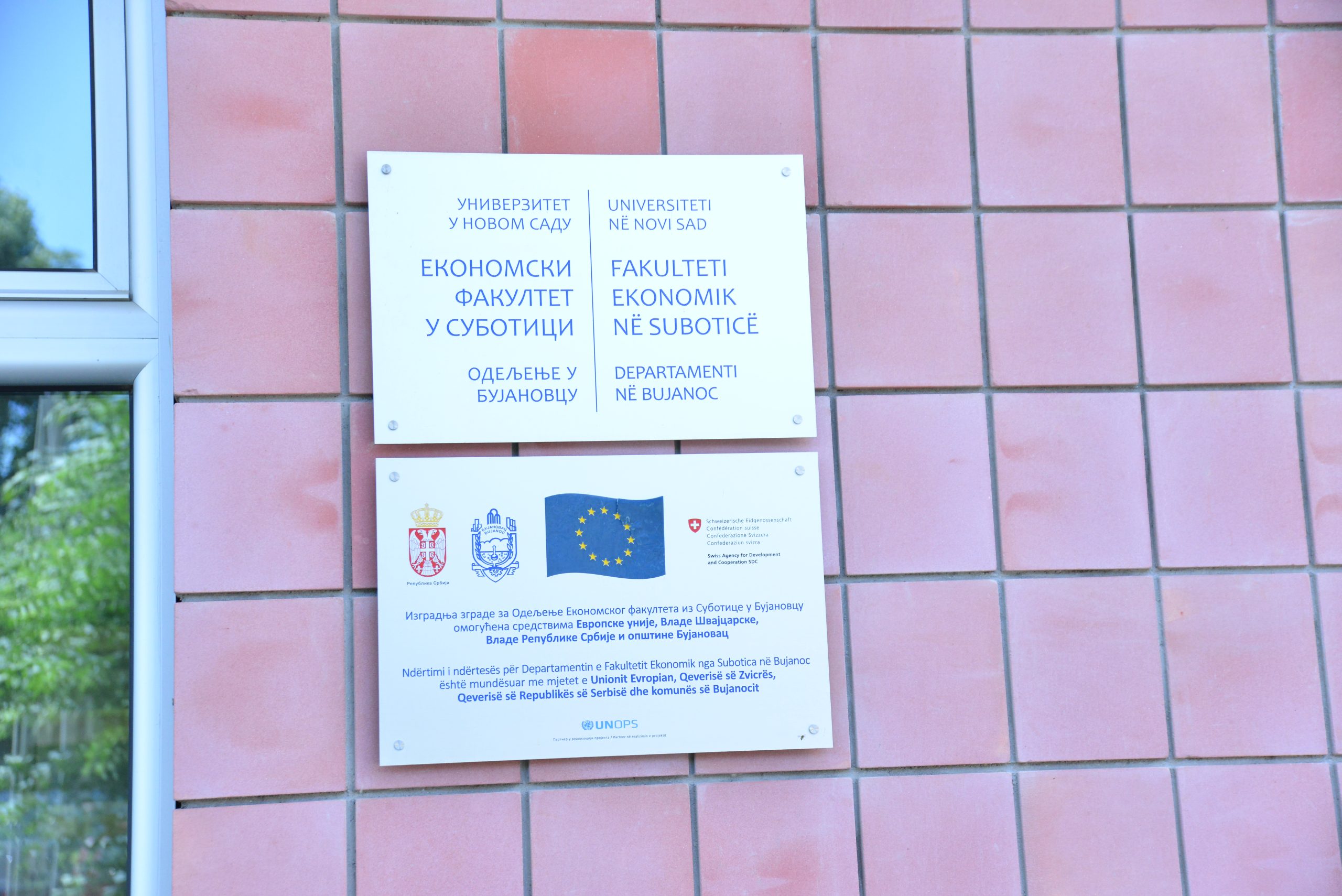
The new Erasmus + programme runs from 2021 to 2027, with the projected budget for the seven-year period standing at about 26 billion euros.
So far, over 13,000 students and teachers from Serbia have had the opportunity for professional development at European universities. Meanwhile, universities and other educational institutions in Serbia have attracted over 4,300 students and teachers from Europe through the Erasmus+ programme.

